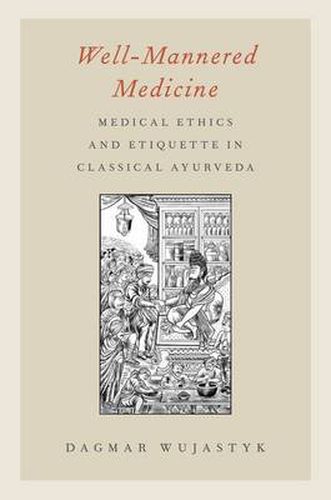Readings Newsletter
Become a Readings Member to make your shopping experience even easier.
Sign in or sign up for free!
You’re not far away from qualifying for FREE standard shipping within Australia
You’ve qualified for FREE standard shipping within Australia
The cart is loading…






Dagmar Wujastyk explores the moral discourses on the practice of medicine in the foundational texts of Ayurveda. The classical ayurvedic treatises were composed in Sanskrit between the first and the fifth centuries CE, and the later works, dating into the sixteenth century CE, were still considered strongly authoritative. As Wujastyk shows, these works testify to an elaborate system of medical ethics and etiquette.
Physicians looked to the ayurvedic treatises for a guide to professional conduct. Ayurvedic discourses on good medical practice depict the physician as highly-educated, skilled, moral, and well-mannered. The rules of conduct positioned physicians within mainstream society’s and characterized medical practice as a trustworthy and socially acceptable profession. At the same time, professional success was largely based on a particular physician’s ability to cure his patients. This resulted in tension, as some treatments and medications were considered socially or religiously unacceptable. Doctors needed to treat their patients successfully while ostensibly following the rules of acceptable behavior.
Wujastyk offers insight into the many unorthodox methods of avoiding conflict while ensuring patient compliance shown in the ayurvedic treatises, giving a disarmingly candid perspective on the realities of medical practice and its crucial role in a profoundly well-mannered society.
$9.00 standard shipping within Australia
FREE standard shipping within Australia for orders over $100.00
Express & International shipping calculated at checkout
Dagmar Wujastyk explores the moral discourses on the practice of medicine in the foundational texts of Ayurveda. The classical ayurvedic treatises were composed in Sanskrit between the first and the fifth centuries CE, and the later works, dating into the sixteenth century CE, were still considered strongly authoritative. As Wujastyk shows, these works testify to an elaborate system of medical ethics and etiquette.
Physicians looked to the ayurvedic treatises for a guide to professional conduct. Ayurvedic discourses on good medical practice depict the physician as highly-educated, skilled, moral, and well-mannered. The rules of conduct positioned physicians within mainstream society’s and characterized medical practice as a trustworthy and socially acceptable profession. At the same time, professional success was largely based on a particular physician’s ability to cure his patients. This resulted in tension, as some treatments and medications were considered socially or religiously unacceptable. Doctors needed to treat their patients successfully while ostensibly following the rules of acceptable behavior.
Wujastyk offers insight into the many unorthodox methods of avoiding conflict while ensuring patient compliance shown in the ayurvedic treatises, giving a disarmingly candid perspective on the realities of medical practice and its crucial role in a profoundly well-mannered society.